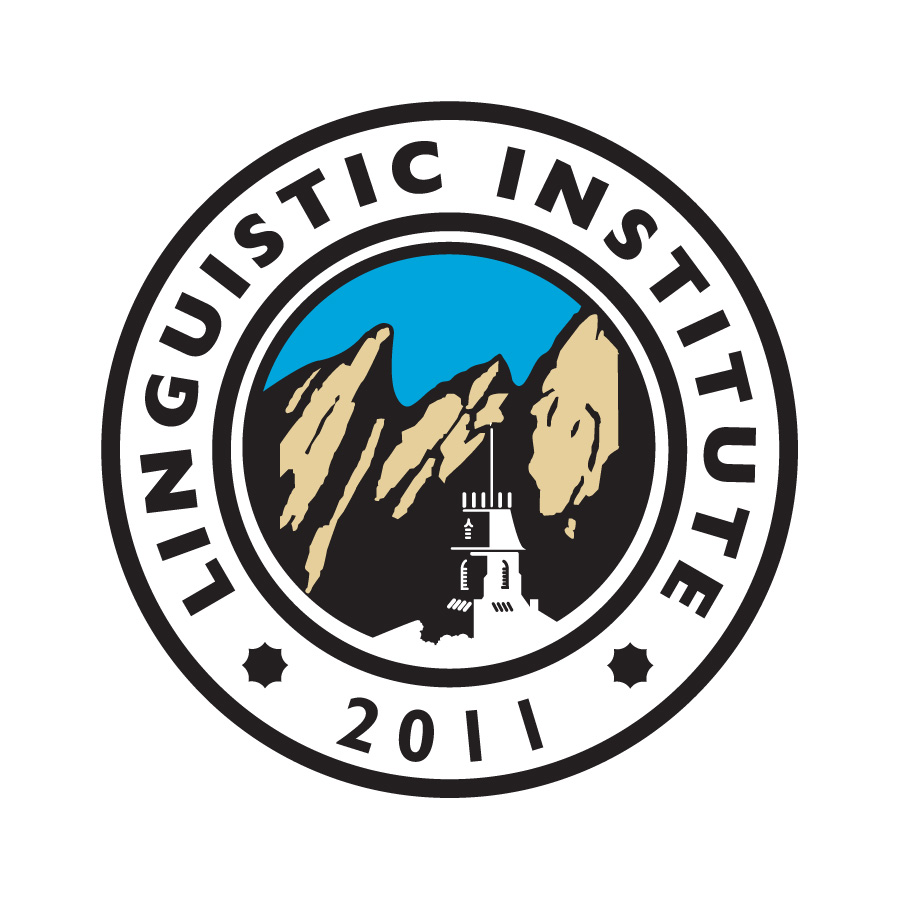Special Opportunities for Language Teachers at
the 2011 Linguistic Institute
 University of Colorado(CU)’s Department of Linguistics is hosting the Summer Linguistic Institute this summer. This institute is sponsored every two years by the primary professional/academic organization in the field, the Linguistic Society of America. This is a highly prestigious event (last three locations were Stanford, UC-Berkeley, and MIT), and this is almost certainly the only time it will be held in Colorado, at least for many years.
University of Colorado(CU)’s Department of Linguistics is hosting the Summer Linguistic Institute this summer. This institute is sponsored every two years by the primary professional/academic organization in the field, the Linguistic Society of America. This is a highly prestigious event (last three locations were Stanford, UC-Berkeley, and MIT), and this is almost certainly the only time it will be held in Colorado, at least for many years.
The Institute offers 80 graduate-credit courses, in all areas related to linguistics, running during the B-term of summer school. The courses are taught by faculty from around the world, invited for the occasion. Approximately 350 graduate students – also from around the world – are expected to enroll, along with 50-100 affiliates, from the business world or as interested private individuals
Registration is open until July 5, so please consider taking advantage of this one-time opportunity. Enrollment costs for students are $375 per course (less than the normal CU summer school fee). The Institute website is located at http://verbs.colorado.edu/LSA2011/. CAMPUS HOUSING RESERVATIONS CAN BE MADE THROUGH JUNE 13, 2011.
There are quite a few courses which would be of interested to those teaching foreign languages, and which would not necessarily require advanced technical knowledge of linguistics. These include:
Other courses which would be very relevant to language teaching and study, of a somewhat more technical nature, include:
In addition, there are a number of courses which will offer general introductions to topics in linguistics, which are especially intended to draw undergraduate audiences. These include introductions to semantics (study of meaning), morphology (study of word variation and grammatical forms), and psycholinguistics (study of way the brain processes language and information).
Finally, there are a number of workshops, films and plenary lectures which are free and open to the public. These include:
Thursday, July 21 Terrence Deacon, Program in Biological Anthropology, Department of Anthropology, University of California, Berkeley
'Brain-Language Co-Evolution: Neither Nature nor Nurture'
Wednesday, July 20 “Speaking in Tongues” (follows four children through the world of bilingualism and bilingual education in the US)
There are approximately 20 workshops. A number of them have a fairly narrow focus (see the complete listing). However, some have much broader appeal. Among these is a two-day workshop on language endangerment (#13) and another on language in space (#9) which examines patterns in language variation, the development of dialects across space and through time, and the factors leading to language variety. Also, the Society for the Study of Indigenous Languages of the Americas (SSILA) will hold its annual meeting here in conjunction with the Institute, on July 30-Aug. 1.
We hope that you will strongly consider taking advantage of these wonderful, one-time opportunities. If you have questions, please contact cowellj@colorado.edu